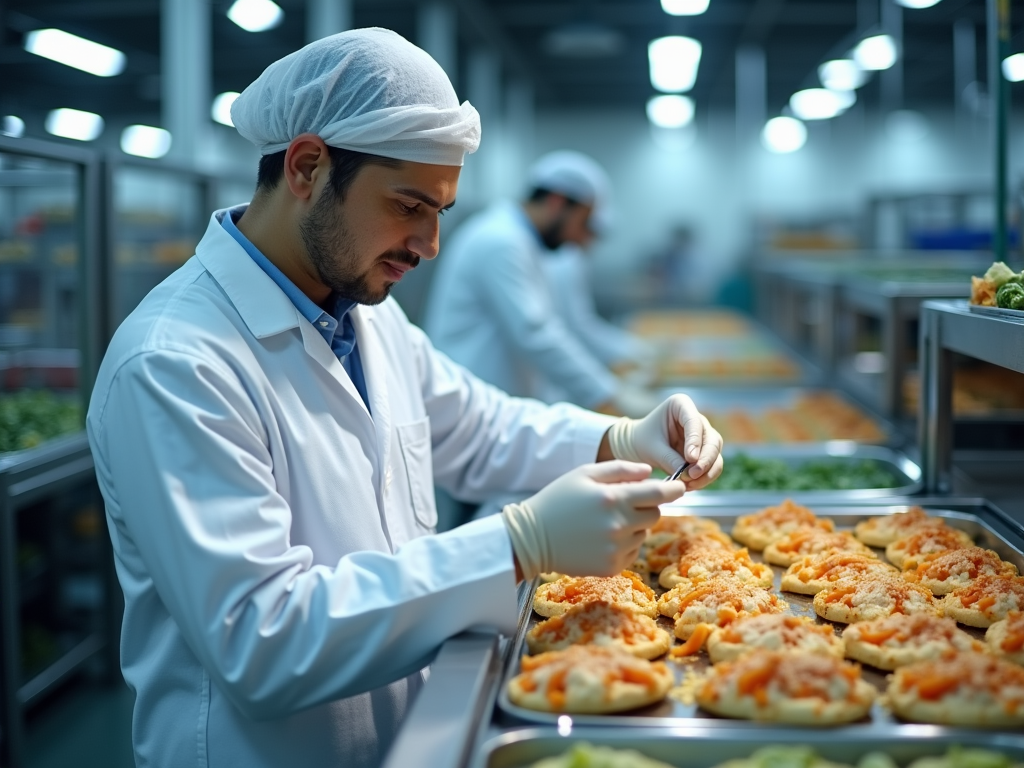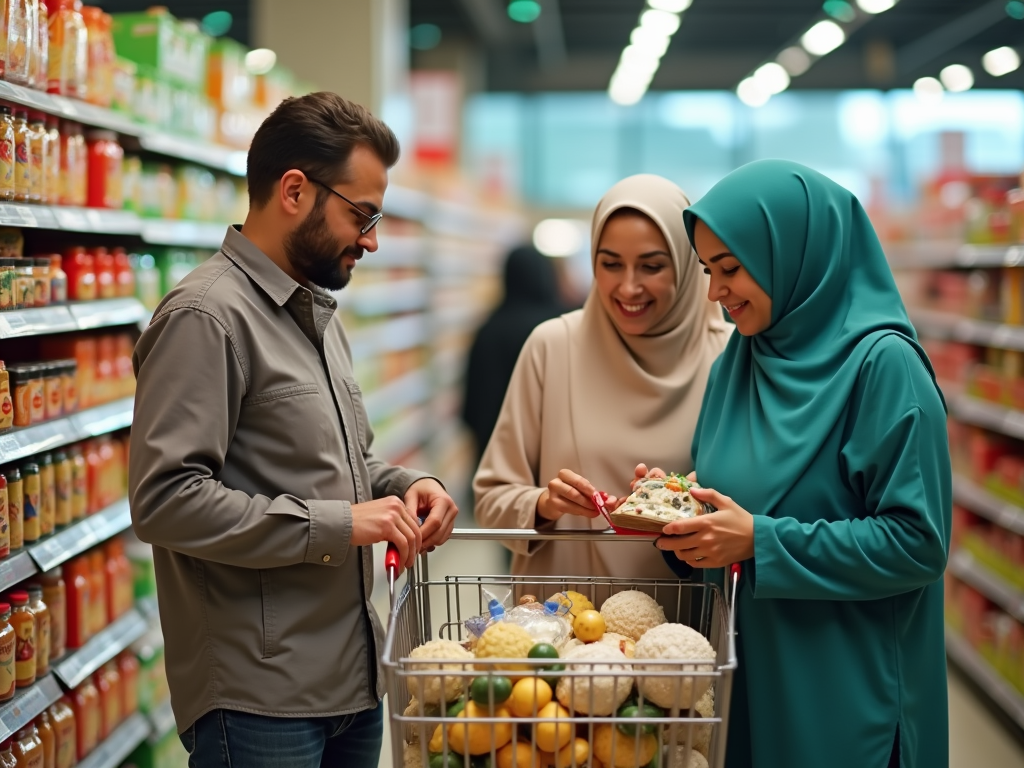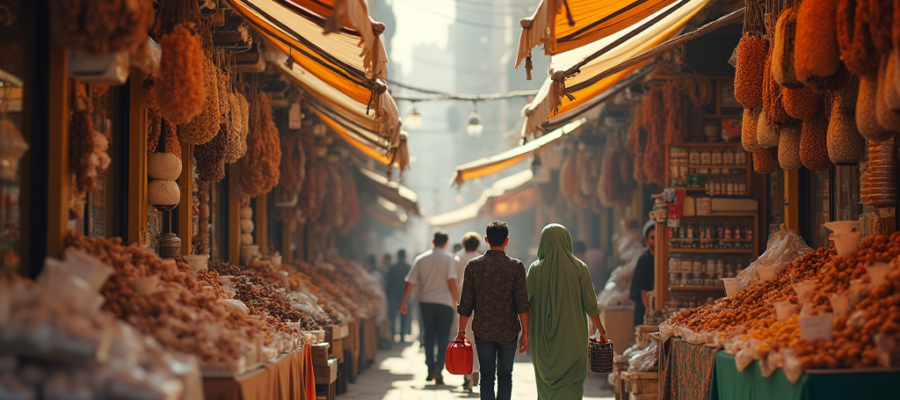The halal industry in Dubai has witnessed remarkable growth over recent years, becoming a significant player in the global market. This expansion is driven by various factors, including the increasing demand for halal products, strong government support, and the city’s strategic location as a hub for trade and tourism. By providing opportunities across various sectors, from food and beverages to cosmetics and tourism, the halal industry is effectively enhancing Dubai’s economic diversity. This article explores the factors contributing to the growth of the halal industry in Dubai, and what the future may hold for this thriving market.
Key Drivers of Halal Industry Growth

The growth of the halal industry in Dubai can be attributed to several key drivers. As the population of Muslim expatriates and tourists increases, so does the demand for halal products across multiple sectors. Moreover, the city’s status as an international hub for trade makes it a critical entry point for halal goods seeking access to markets in the Middle East, Africa, and beyond. Additionally, the government has initiated several policies aimed at bolstering the halal economy, thereby creating an encouraging business environment. The incorporation of halal standards in educational establishments adds to the awareness and improves the quality of halal products offered.
- Increased Muslim Population: The influx of tourists and residents has raised the demand for halal goods.
- Global Demand: The global market for halal products is estimated to be worth trillions of dollars, creating opportunities for Dubai businesses.
- Government Support: Initiatives from Dubai authorities have provided necessary frameworks for halal industries.
- Awareness and Education: Increased education about halal standards has improved market integrity.
The Role of Dubai’s Strategic Location

Dubai’s strategic geographical position has played a pivotal role in the growth of the halal industry. Being situated at the crossroads of Europe, Asia, and Africa, Dubai holds a unique advantage as a logistics hub for halal goods. The emirate’s world-class infrastructure facilitates efficient transportation and distribution, allowing businesses to reach new markets swiftly. Furthermore, Dubai’s ports, airports, and free trade zones enable seamless trade flows, significantly reducing operational costs for companies engaged in the halal sector.
This logistical advantage is complemented by the development of specialized halal zones, fostering a diverse range of products and services. Companies operating in sectors like food manufacturing and cosmetics can benefit from specialized regulations aimed at maintaining halal compliance. Additionally, the Dubai Expo 2020 has further increased visibility for halal businesses, exposing them to global audiences.
One of the crucial aspects of the halal industry’s growth in Dubai is the establishment of a robust halal certification framework. Regulatory bodies like the Emirates Authority for Standardization and Metrology (ESMA) have introduced stringent halal standards to provide consumers with the assurance they need regarding product authenticity. Those standards cover a broad range of industries, including food, pharmaceuticals, cosmetics, and food services.
The halal certification process involves rigorous checks throughout the supply chain—from sourcing raw ingredients to distribution. As a result, consumers can confidently choose halal products, knowing they meet regulatory standards. The increased transparency in the supply chain not only boosts consumer trust but also enhances the reputation of Dubai’s halal industry on a global scale. Businesses that achieve certification often see a significant increase in their customer base and sales, reflecting the importance of certification in this market.
Future Trends in Dubai’s Halal Industry
The future of the halal industry in Dubai looks promising, with several emerging trends poised to influence its trajectory. Firstly, digital transformation is expected to play a crucial role in how halal products are marketed and sold. The rise of e-commerce provides vendors with a platform to reach a broader audience, enhancing convenience for consumers.
Another significant trend is the incorporation of sustainability and ethical practices into halal operations. As awareness of environmental concerns grows, many consumers are looking for products that not only meet halal requirements but also adhere to sustainable practices. Companies that can blend halal principles with eco-friendly initiatives are likely to stand out. Additionally, innovations in food technology, such as plant-based halal alternatives, are gaining traction. This not only keeps the halal market relevant but also explores new consumer bases.
Conclusion
The halal industry in Dubai is not just growing; it is evolving into a critical component of the emirate’s economy. With a combination of strong governmental support, a strategic location, a robust certification process, and adaptability to future trends, the industry is well-positioned to thrive. This growth will not only meet the needs of the growing Muslim population but also enhance Dubai’s status as a global leader in the halal market. Businesses that align with these changes will find themselves not only surviving but prospering in this lucrative sector.
Frequently Asked Questions
1. What is the halal industry?
The halal industry encompasses products and services that comply with Islamic law, covering sectors like food, cosmetics, pharmaceuticals, and tourism.
2. Why is Dubai a hub for the halal industry?
Dubai’s strategic location, strong infrastructure, and supportive government initiatives make it an ideal hub for halal trade and commerce.
3. What are the benefits of halal certification?
Halal certification provides consumers with assurance of product authenticity, expands market reach for businesses, and enhances credibility and consumer trust.
4. How does the halal industry contribute to Dubai’s economy?
The halal industry diversifies the economy, generates employment, attracts tourism, and establishes Dubai as a global leader in halal commerce.
5. What future trends may impact the halal industry in Dubai?
Future trends such as digital transformation, sustainability, and innovations in food technology are expected to shape the halal industry in Dubai significantly.
